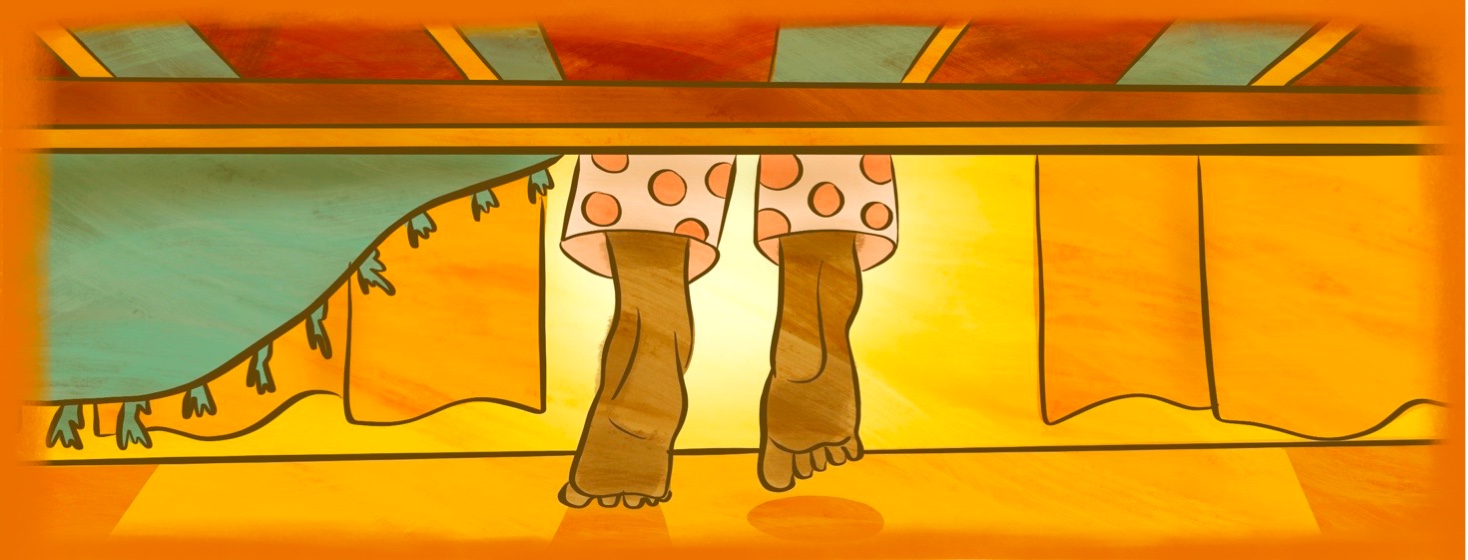Morning Pain and Tension: Is it Stress, or Is it MS?
Sometimes we can wake up tense and in pain in the morning.
How unfair is that? We are supposed to awaken refreshed and without pain.
Waking up with pain and tension
MS tends to throw us curveballs, however. The ways in which we clench parts of the body, even during sleep, are something we might want to pay more attention to, especially if we are experiencing pain as a result.
Sometimes, these mornings of pain and tension indicate untreated (or undertreated) MS (or other medical) symptoms, and sometimes, they indicate areas in the body where we harbor tension and stress without realizing it.
Is morning pain due to stress?
In the case of symptoms that need attention, a chat with your doctor might be in order. It might be that you need a medication or some physical therapy to deal with certain kinds of spasms or muscular tightening in your body if they leave you uncomfortable or make it more difficult to function.
The feet, for instance, may curve inward as a sign of contractures. This may be the result of infrequent or inadequate use of the feet.
Tight feet make it difficult to get moving
In the morning, some of us may wake up with tight feet that don't function well when trying to step out of bed.
For those who are sedentary and don't use their feet enough during the day, take heed. Desk jockeys might consider a standing desk or taking more walking breaks to prioritize strong, functional feet. Use them or lose them? Maybe.
Untreated spasticity
In the case of those who cannot use their feet due to paralysis or weakness, or because they ambulate using a wheelchair or other assistive device, pain in the feet may also occur, not only through their disuse, but as the result of tension trapped there by untreated or undertreated issues with spasticity.
Whatever the cause, you needn't suffer if you don't have to. Talking to your doctor might open up a discussion that leads to better therapies for reducing pain and spasticity.
Stress relief for MS
If you generally struggle with carrying tension in your body (even in your feet!), and it can't be linked to the symptoms of MS or other medical conditions, it may be that you simply hold stress in a way that causes pain.
Stress relief can come from practicing yoga, doing simple stretches, meditation, breathing in patterns, or focusing healing thoughts on your areas of tension and using imagery to help to unlock them.
I have personally found that a morning body scan, from the tips of my toes to the crown of my head, tells me a lot about my current physical and emotional state in that moment. Practicing stress reduction by focusing on these areas has been very beneficial for me. But this only works if I listen to my body.
Check in with different body parts every morning
Here are some areas of the body (besides the feet) to check in with every morning. Note any pain or tension you find as you awaken. Is it recurring? If it happens on a regular basis or interrupts your daytime function, you may wish to discuss this with your neurologist.
Forehead (furrowed brow)
You can find the area above and around your eyes to be extremely tight, even painful. in the morning. It might be a place where you hold tension, or it could be signs of trigeminal neuralgia. If you have a headache as well, it could also signal potential migraine activity. Or it might be referred sensations from clenching the jaw.
Jaw (bruxism)
This is a common problem, both day and night. Clenching the jaw and grinding the teeth (bruxism, or bruxing) are ways that we carry tension. It can happen as we concentrate on projects or face stressful situations while we are awake. It also happens as we sleep.
Sometimes, bruxing is a sign of a sleep-breathing the disorder: the brain signals to the jaw to tense up when the upper airway collapses, in order to improve the tone so you can breathe more freely. Tension in the jaw can also come from MS-related problems like trigeminal neuralgia.
Throat or chest tightening
If you've had an MS hug, then you know how this feels. The musculature around the ribcage seems to turn to rock and squeeze like a vice! Vocal cords can also be the victim of lesion activity in the brain, which can cause problems with speaking and swallowing. Or, you might find you choke up because you carry tension here.
Clenched hands
During the day, we see clenched hands as a sign of tension, defensiveness, even aggression, with or without MS. Clenching of the fingers can also be a sign of muscular spasticity. If you awaken with hands clenched, you may need to decipher the root cause: is it stress? or is it MS?
Belly muscles
If you've ever taken yoga, you learn that babies breathe deeply through their bellies, while stressed-out adults tend to breathe more shallowly in the upper chest.
If your core abdominal muscles are tight or painful, it could be due to poor posture, flabby muscles, or MS-related spasms. Some people also suck in their gut as a kind of defense mechanism, an involuntary tension-grabbing response to stress.
Pelvic floor & gluteus muscles
Think about the way a dog tucks in its tail when it's facing a tense situation. Human beings do a similar kind of tightening in their posterior and pelvic floor muscles, probably as part of the fight or flight mechanism. But waking up with "buns of steel" or rock-hard kegels may also be the result of MS.

Join the conversation